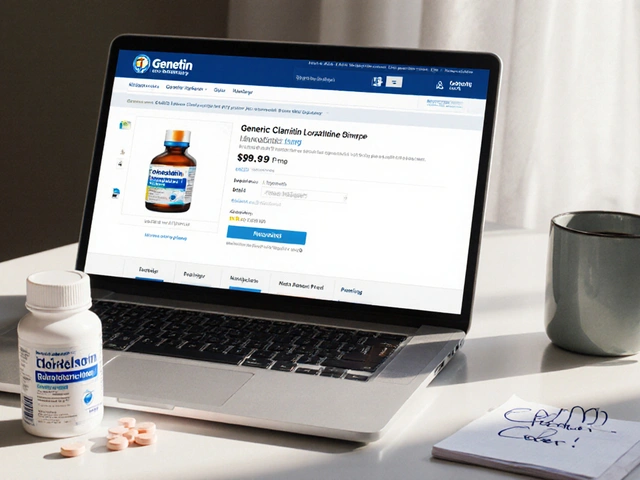Herpes Treatment Switch: Simple Steps to Change Your Medication
If you’re thinking about swapping your herpes medicine, you’re not alone. Many people stop Valtrex or another antiviral because of side effects, cost, or because it stopped working as well. Changing meds can feel confusing, but the process is a lot easier when you know the basics. Below we break down why you might switch, which alternatives are worth a look, and how to make the move without weird side effects.
Why People Switch Their Herpes Medication
First, understand the main reasons people consider a switch. The most common are:
- Side effects. Some users get headaches, nausea, or a rash with Valtrex.
- Cost. Brand‑name Valtrex can be pricey, especially without insurance.
- Resistant virus. In rare cases the virus gets used to the drug and outbreaks become more frequent.
- Convenience. Dosing schedules differ – you might prefer a once‑daily pill over a five‑day course.
Knowing your trigger helps you pick an alternative that actually fixes the problem.
Top Alternatives and What Sets Them Apart
The most talked‑about switches are to other antivirals that work the same way as Valtrex but have different pros and cons.
- Acyclovir (Zovirax). It’s the oldest herpes drug. It’s cheap and works well, but you usually need to take it four times a day for an outbreak.
- Famciclovir (Famvir). Similar to Valtrex in effectiveness, but you can often dose once or twice daily. Some people find it easier on the stomach.
- Penciclovir (Denavir). Available as a cream for cold‑sore outbreaks. It’s handy if you only get oral lesions and want a topical fix.
- Docosanol (Abreva). Over‑the‑counter cream approved for cold sores. It won’t stop genital outbreaks, but it can cut the healing time for mouth sores.
- Generic Valtrex. If cost is the issue, ask your pharmacy for the generic version. It’s usually much cheaper and has the same effect.
Price, dosing frequency, and how your body reacts are the three factors to weigh when you compare these options.
Quick tip: Write down how often you need to take each drug, how much it costs per month, and any side effects you’ve heard about. Seeing the info side by side makes the choice clear.
How to Switch Safely
Don’t just stop one pill and start another on your own. Here’s a safe plan:
- Talk to your doctor. Explain why you want to switch. Your doctor can check for drug interactions and make sure the new medication will cover you.
- Finish the current pack. If you’re on a suppressive dose (daily), you can usually stop the last dose and start the new one the next day. For an episodic course, finish the full treatment before starting a new one.
- Set a start date. Mark your calendar for the first dose of the new drug. Consistency helps keep the virus in check.
- Watch for side effects. The first week is when you’ll notice most reactions. If you get a rash, severe headache, or feel dizzy, call your doctor right away.
- Track outbreaks. Keep a simple log of any sores, how long they last, and how severe they feel. This helps you and your doctor see if the new drug is working.
Most people feel a difference within two weeks. If you don’t notice improvement after a month, let your doctor know – you might need a different drug or a dosage tweak.
Saving Money While Switching
Cost is a big driver for a switch, so these hacks can help:
- Ask for a 90‑day supply. Pharmacies often give a discount for larger amounts.
- Check your insurance formulary. Some plans list one antiviral as preferred, which means a lower copay.
- Look for manufacturer coupons. Even the generic versions sometimes have printable discounts.
- Consider a reputable online pharmacy if you live in Australia or the UK. Make sure the site requires a prescription and has good reviews.
Saving a few dollars each month adds up, especially if you’re on suppressive therapy for years.
Switching herpes medication doesn’t have to be scary. Pinpoint why you want a change, compare the top alternatives, and follow a simple step‑by‑step plan with your doctor’s help. In most cases you’ll land on a cheaper, easier‑to‑take drug that keeps outbreaks at bay. Ready to make the switch? Talk to your healthcare provider today and start tracking your progress tomorrow.

When to Switch From Valtrex to Acyclovir: Practical Insights on Resistance and Dosing
Sometimes, sticking to a herpes medication that once worked just isn't cutting it anymore. This article dives into when and why a switch from Valtrex to acyclovir makes sense. You'll learn about real-life clinical triggers behind switching, what resistance means, and why dosing schedules matter to real people. Plus, get expert wisdom on navigating alternative treatments when the usual meds fail. This read breaks down complicated science into plain advice you can use—straight talk, not medical mumbo jumbo.




